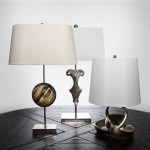Essential Aspects to Consider When Choosing Interior Room Doors
Interior room doors hold a crucial role in the design and functionality of any home or commercial space. They offer privacy, define spaces, and contribute to the overall aesthetic. When it comes to selecting interior room doors, several essential aspects demand careful consideration to ensure optimal performance and a cohesive design:
1. Material:
The material of the door, such as solid wood, hollow core, or composite materials, influences its durability, soundproofing, and aesthetic appeal. Solid wood doors offer exceptional durability and sound insulation but can be expensive. Hollow core doors provide economic options yet compromise sound absorption. Composite doors, crafted using engineered materials like fiberglass and wood composites, offer a balance between cost, durability, and sound reduction.
2. Style:
Interior room doors come in diverse styles to complement various room designs. Panel doors feature flat panels for a classic and sophisticated look. Louvered doors with horizontal slats allow airflow and create a breezy atmosphere. Glass doors offer a modern and open feel, allowing natural light to penetrate spaces. The style of the door should harmonize with the surrounding décor and reflect the desired ambiance.
3. Hardware:
The choice of hardware for interior room doors, including handles, knobs, and hinges, contributes to both functionality and aesthetics. Consider the finish and style of the hardware to match the door's material and overall design. Lever handles offer ergonomic convenience and are ADA-compliant, making them suitable for spaces with accessibility requirements. Knobs provide a traditional look and are ideal for smaller doors. Concealed hinges present a sleek and modern appearance, blending seamlessly with the door frame.
4. Size and Function:
Accurately measuring the door opening is essential to determine the correct size of the door. Pre-hung doors, complete with the frame and hardware, simplify installation. Pocket doors slide into the wall cavity, saving space in confined areas. Bypass doors slide horizontally, providing a wide, open passage when desired. French doors add elegance and allow natural light to flood in, suitable for spacious rooms or as patio doors.
5. Privacy and Noise Reduction:
Interior room doors play a crucial role in privacy and noise control. Solid wood doors offer excellent soundproofing, while hollow core doors provide limited sound absorption. Adding weatherstripping or acoustic seals around the door jamb can further enhance noise reduction. Frosted glass panels on doors allow light to pass through while maintaining privacy.
Conclusion:
Choosing interior room doors involves considering various essential aspects to ensure optimal performance and a harmonious design. By carefully assessing the material, style, hardware, size and function, and privacy and noise reduction requirements, homeowners and designers can select doors that complement the space, enhance functionality, and add aesthetic appeal to any interior.

Interior Doors At Lowe S

Interior Door Guide The Home Depot

11 Types Of Interior Doors You Should Know Oppein

Remodel Your Rooms Using These 73 Awesome Interior Doors Modern Wood

Choosing Designer Bedroom Doors 4 Key Considerations Mikasa Blog

Interior Door Guide The Home Depot

Internal Doors Interior Wickes

Picking Interior Doors For Your Home Tips From Our Millwork Door Division

Buy Interior Doors For Quick Delivery Affordable S
.jpg?strip=all)
Prehung Doors Interior The Home Depot








